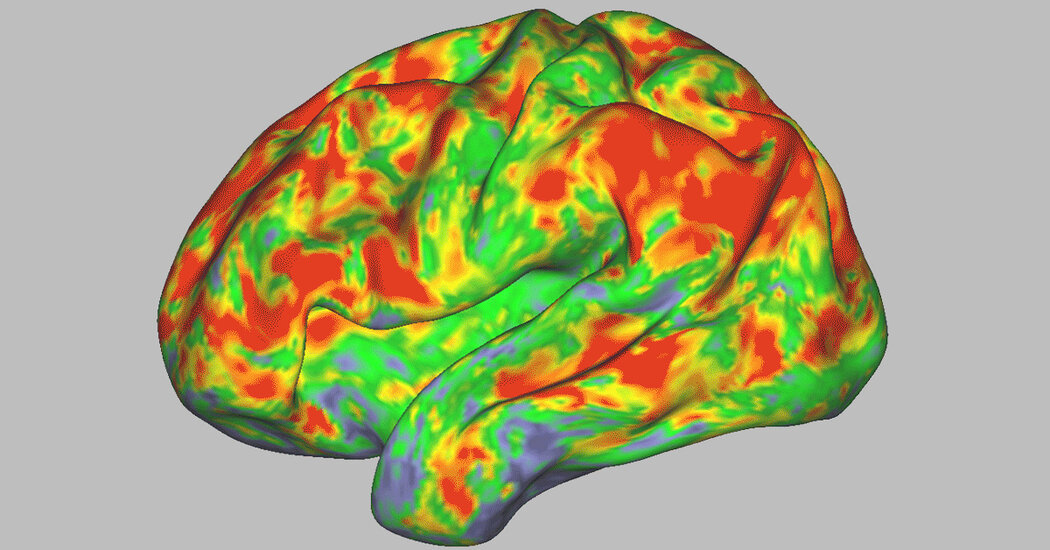- cross-posted to:
- health@lemmy.world
- cross-posted to:
- health@lemmy.world
The image, as it happens, comes from dozens of brain scans produced by researchers at Washington University School of Medicine in St. Louis who gave psilocybin, the compound in “magic mushrooms,” to participants in a study before sending them into a functional M.R.I. scanner. The kaleidoscopic whirl of colors they recorded is essentially a heat map of brain changes, with the red, orange and yellow hues reflecting a significant departure from normal activity patterns. The blues and greens reflect normal brain activity that occurs in the so-called functional networks, the neural communication pathways that connect different regions of the brain.
The scans, published Wednesday in the journal Nature, offer a rare glimpse into the wild neural storm associated with mind-altering drugs. Researchers say they could provide a potential road map for understanding how psychedelic compounds like psilocybin, LSD and MDMA can lead to lasting relief from depression, anxiety and other mental health disorders. “Psilocybin, in contrast to any other drug we’ve tested, has this massive effect on the whole brain that was pretty unexpected,” said Dr. Nico Dosenbach, a professor of neurology at Washington University and a senior author of the study. “It was quite shocking when we saw the effect size.” Brian Mathur, a systems neuroscientist at the University of Maryland School of Medicine in Baltimore, says these findings cannot show exactly what causes the therapeutic benefit of psilocybin, but “it’s possible psilocybin is directly causing” the brain-network changes. That, or it is creating a psychedelic experience that in turn causes parts of the brain to behave differently.
The next step is to determine whether psilocybin’s blood-flow changes in the brain or its direct effects on neurons, or both, are responsible for the brain-network disruptions. “The best part of this work is that it’s going to provide a means forward for the field to develop further hypotheses that can and should be tested,” Mathur says.
it’s literally not my brain. my brain is in my head right now. (last time i checked)
New York Times too, that’s some shockingly bad copy.
Hey, I didn’t write the title 😆
You forgot to wear your tinfoil hat.
Love seeing more research on psilocybin! Keep it up!
Yeah we should be everyone on drugs , constantly
deleted by creator





